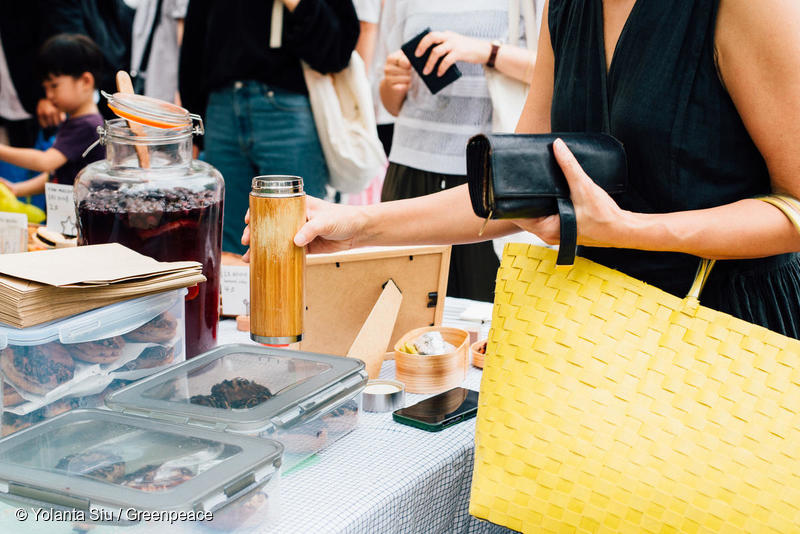It’s time for Starbucks to rethink its strategy and accelerate the transition to reusable cups as the company is doing in Korea.

On April 6, Starbucks Coffee Korea announced it will phase out the use of disposable cups in its Korean-based cafes by 2025. This is a first for the company whose environmental commitments have been primarily limited until now to promoting itself as an environmental friendly corporation.
Why this is an important step
The billions of throwaway cups used every day around the world are a significant source of plastic pollution. According to Starbucks itself, the company distributes about 6 billion disposable cups and mugs worldwide each year, most of which end up in landfills or in the environment. This change in direction represents an important step towards reducing the brand’s plastic footprint.
As such, the introduction of a reusable, returnable cup program in select Starbucks cafes starting in the summer of 2021 — a circular model already in practice in many parts of the world — will allow Starbucks customers to order a beverage in a reusable, returnable container, with the deposit refunded once the cup is returned and scanned at a participating cafe or contactless collection point.
Why in Korea and not elsewhere in the world?
It’s a million-dollar question. For Greenpeace Korea, the answer is political. Indeed, the Korean government was instrumental in pushing Starbucks to make such a commitment. As part of a larger reduction commitment, the government pursued a ban on disposable straws and cups by 2027. In addition, after China announced a ban on waste imports in 2018, Korea had no choice but to find solutions for its domestic plastic waste.
Previously, a voluntary agreement between the Ministry of Environment and coffee shop franchises in 2018 had already started the ball rolling, making coffee shops offer a US$0.30 discount per order to customers bringing their own reusable cups. In addition, as part of its Resource Saving and Recycling Act, the government had already enacted the introduction of a deposit system for disposable cups starting June 2022. The Korean government has therefore taken the lead in guiding major retailers to reduce their plastic footprint. And for big players like Starbucks, with its 1.7 billion dollars turnover in 2020 and its 1500 coffee shops all over South Korea, we can say that the political will has given results.

What needs to happen now
This commitment from Korea’s takeaway coffee giant makes us optimistic that other franchises will follow suit. For Greenpeace Korea, this is an opportunity to put pressure on other fast food chains, to phase out all single use plastic. But for the rest of the world, the problem remains.
What you/your community can do
In March 2020 Starbucks put a hold on accepting reusable cups amid concerns over COVID transmission. However following reassurances from health experts and the creation of ‘contactless coffee protocols’ reusables are now back on the menu in its cafés in Europe, the Middle East and Africa, but bizarrely are still not welcome in its North American cafes
It’s time for Starbucks to rethink its strategy and accelerate the transition to reusable cups as the company is doing in Korea. We’re asking Starbucks to :
- Accept reusable cups and promote this zero waste option worldwide.
- Launch returnable reusable cup programs in every country where the chain operates.
- Commit to eliminating disposable cups from their cafes worldwide by 2025.
We know that when consumers speak out, big brands listen. If enough people call on these companies to make a change, change will happen. Sign the petition now to challenge Starbucks, and tag the brand on Instagram, Twitter and Facebook accompanied with the hashtag #BreakFreeFromPlastic and #WeWantReusables.
Agnès Le Rouzic & John Yum are Plastic Campaigners with Greenpeace Canada & Greenpeace East Asia (Seoul
